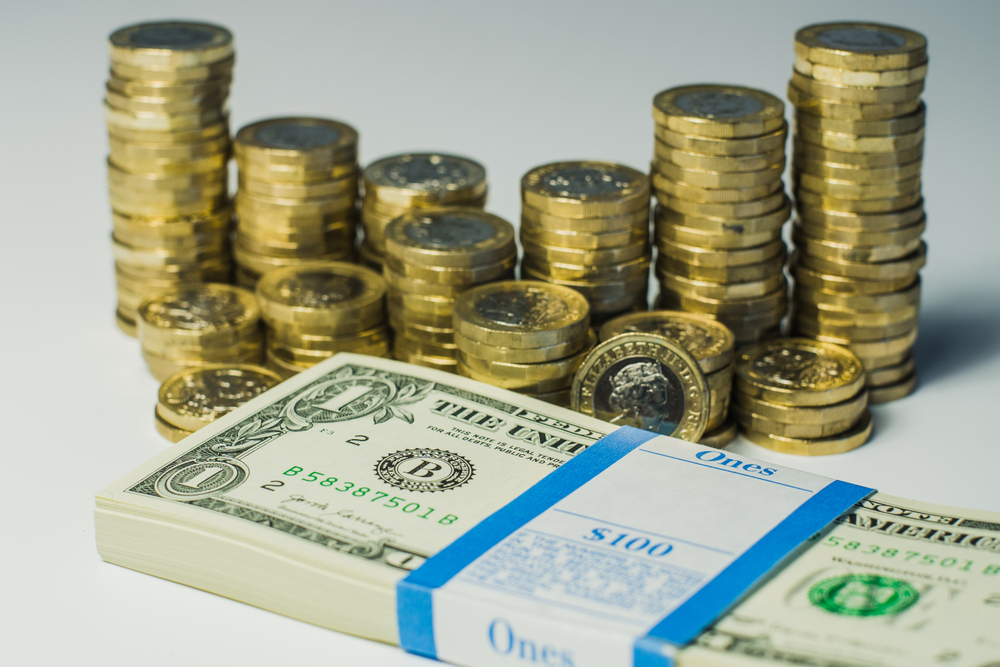Getting Started
Pound crashes to new low as tax cuts fuel investor panic

The pound fell to $1.03 when trading opened in Asia this morning, a low not seen since 1971. While it has recovered slightly, the tax cuts announced in Friday’s mini-Budget continue to send shockwaves through the economy.
Last week saw the Bank of England raise the base rate to 2.25% in a bid to curb soaring inflation.
But the very next day, new Chancellor Kwasi Kwarteng announced a slew of tax cutting measures in his mini Budget “to solve the riddle of growth”, putting more money in Brits’ pockets to spend in the economy.
And reports over the weekend suggest Kwarteng is set to announce more tax cuts, this time helping the “forgotten” middle earners caught up in the cost-of-living crisis. But with these measures expected to be financed by debt, investors were unnerved.
Taken together, it resulted in a pound sell-off, with sterling down near 5% to $1.03 when trading opened in Asia this morning. Fears mounted that it might reach parity with the dollar.
According to Sarah Coles, senior personal finance analyst at Hargreaves Lansdown, this is the lowest point since decimalisation in 1971. However, the pound did regain some ground this morning to $1.07.
Joshua Raymond, director at financial brokerage XTB said: “We’ve seen yet more selling in the pound across the Asia trading session. Comments from the Chancellor over the weekend that these tax cuts are just the start have raised suspicion about the state of UK finances in the medium term.
“To emphasise this, the GBP is falling not just against the dollar, but also the euro and yen. That means the latest falls are not just about dollar strength, it’s about sterling weakness.”
Raymond added that the sharp GBP declines “are quickly necessitating intervention by the Bank of England to announce a rate hike that would surprise the market”.
He said: “It could well be the case that to restore some kind of credibility, we might need to see a 2% hike by the BoE immediately. But that sort of intervention could pit the central bank in direct hostility with the treasury, so even if we do see a kind of intervention, it won’t be the end of uncertainty.”
Pound’s weakness: Impact on investing, saving and pensions
For now, Coles explained that the pound’s weakness in reaction to last week’s tax cuts “will have a profound impact on everything”, from the cost of filling up the car, supermarket prices to debt repayments and the value of our savings.
When it comes to investing, the impact depends on your holdings and where those companies make their money.
The FTSE 100 tends to benefit from a weak pound as most of the big companies listed in London earn most of their money overseas. So once profits are converted back into pounds, it’s worth more.
Meanwhile, the more domestically-focused FTSE 250 slipped back to 2020 levels as it is more sensitive to the weaker pound.
Coles explained: “Any business that makes its money in the UK will face challenges. Retailers and other businesses who buy goods in from overseas face rising costs. They can try to pass the higher cost of imported goods on to consumers, or they can try to cut their operating costs, but the speed with which sterling has fallen is going to make life horribly difficult. That’s why the more domestically-focused FTSE 250 is likely to be more sensitive to the weaker pound.”
For savers, the falling pound is likely to push inflation higher, with this having an eroding effect on cash.
The Bank of England is likely to counter rising inflation by raising interest rates, which should feed into better savings deals.
Meanwhile for pension savers, weak currency and inflation could mean reduced purchasing power, according to Romi Savova, CEO of PensionBee.
She said: “With the pound’s current economic position, those who are currently withdrawing from their pension may see reduced purchasing power from the pound’s economic position. The rate of current inflation is already hovering at a 40-year high, and a weak pound might increase inflation further due to the cost of importing goods increasing.
“Aside from the pound falling, we are still firmly in the grip of a bear market (a market downturn), however, this is temporary. These two are connected by a few factors such as inflation and trade but are also distinct from each other. Currencies, economies, and stock markets are currently struggling in their recovery from shocks over the recent years.”
Savova added that saving for retirement should be viewed as marathon, not a sprint.
She said: “Withdrawing your money from your pension will not recover losses. Money that is invested might see a recovering market, so if it’s possible, prioritise using rainy day funds or savings before counting your losses on your investments– these are the key takeaways navigating market volatility.”